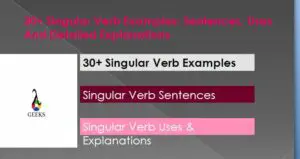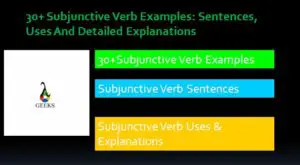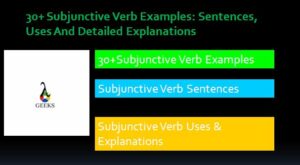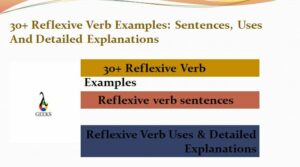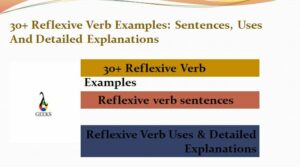We are going to read here one of the important topics in English Grammar that helps the readers a lot to acquire the best knowledge from their sides. Let,s start reading the article with care.
IN is a preposition that specifies the place & position, direction and time. IN Preposition that’s related to direction, location and Time and it must be followed by noun, gerund or a pronoun that is in a part of speech.
IN Preposition Examples:
We will see all the 50+In Preposition Examples within the following list.
- 1. I have confidence in my activities.
- 2. Rahul has experience in acting.
- 3. We have faith in learning.
- 4. I have no interest in business.
- 5. Joyita is absorbed in higher studies in abroad.
- 6. They are correct in their opinions.
- 7. The two boys are equal in height.
- 8. Kabir is honest in relationship.
- 9. The man is involved in this case.
- 10. My village is rich in vegetables.
- 11. The student is weak in Math’s.
- 12. You have arrived in time.
- 13. I don’t believe in you.
- 14. The man deals in jewelry.
- 15. The girl has failed in the final exam.
- 16. The boy wants to join in the game.
- 17. Don’t indulge her in this issue.
- 18. The girl takes pride in her family colours.
- 19. Bhabesh has succeeded in life.
- 20. Roma stayed in a hotel.
- 21. The man was born in 2002.
- 22. He lives in a village.
- 23. The train is running in the South- East.
- 24. They went to Shimla in winter.
- 25. My brother came in March in this year.
- 26. He gets up early in the morning.
- 27. We will celebrate his birthday in the night.
- 28. He is in teaching.
- 29. The girl has returned in 25 minutes.
- 30. The blue car stood in front of our house.
- 31. He continued his activities in the eve of the odd situation.
- 32. The man has selected the IAS in lieu of the IPS.
- 33. In case of his failure in the exam he will take care of his father’s shop.
- 34. In the course of his education he worked in a factory.
- 35. The girl went in favour of her father.
- 36. In spite of his illness he never stops his studies.
- 37. In reply to your job offer letter I am writing you.
- 38. In the connection with your question I am replying you.
- 39. I have taken B.Tech in the place of MBBS.
- 40. Paramita wrote notes in the pen.
- 41. The manager has received Rs.50000 in cash.
- 42. You are all in 20th century.
- 43. The golden period of the Indian film was in 90s.
- 44. The writer published an article in a journal.
- 45. He is not in a good position.
- 46. I am in Delhi.
- 47. He always goes to bed in the evening.
- 48. He does not have sound knowledge in writing.
- 49. The student is not strong enough in Engineering.
- 50. She is in a hurry.
- 51. The man ate food in hungry.
IN Preposition Examples:
Now take a look the usages of IN Preposition Examples.
- 1. Specify the location: –
- Of state, country, continent,
- Enclosed place, Village, town, city,
- Position
- 2. Specify Direction
- 3. Specify Permanent action / occupation
- 4. Specify time
- Period of time
- Year, season, month
- Century
- Decades
- 5. Agent/Instrument/Manner
IN preposition uses with-
- Noun:–
- 1. I have confidence in my activities.
- 2. I have no experience in acting.
- 3. I have no faith in learning.
- Adjective:-
- 1. They are correct in their opinions.
- 2. The two boys are equal in height.
- 3. He is honest in words.
- Verb:-
- 1. The student has arrived in time.
- 2. The boy wants to join in the game.
- 3. The girl has failed in the final exam.
- Phrases:
- 1. I get up in the morning.
- 2. The car stood in front of my house.
- 3. The girl went in favour of her father.
IN preposition is not used with
- 1. Special Relationship
- For Examples
- 1. I am sitting under the tree.
- 2. He is sitting beside me.
- 3. He will go along the road.
- 2. Phrasal verb
Explanations of IN Preposition Examples
Here we will read some explanations of IN Preposition Examples which are given below.
1. I have confidence in my activities.
Here in this sentence the word “Confidence” is a noun with preposition “In”.
2. Rahul has experience in acting.
Here in this sentence the word “Experience” is a noun with preposition “In”.
3. We have faith in learning.
Here in this sentence the word “Faith” is a noun with preposition “In”.
4. I have no interest in business.
Here in this sentence the word “Interest” is a noun with preposition “In”.
5. Joyita is absorbed in higher studies in abroad.
Here in this sentence the word “Absorbed” is an Adjective with preposition “In”.
6. They are correct in their opinions.
Here in this sentence the word “Correct” is an adjective with preposition “In”.
7. The two boys are equal in height.
Here in this sentence the word “Equal” is an adjective with preposition “In”.
8. Kabir is honest in relationship.
Here in this sentence the word “Honest” is an Adjective with preposition “In”.
9. The man is involved in this case.
Here in this sentence the word “Involved” is an Adjective with preposition “In”.
10.My village is rich in vegetables.
Here in this sentence the word “Rich” is an adjective with preposition “In”.
11. The student is weak in Math’s.
Here in this sentence the word “Weak” is an adjective with preposition “In”.
12. You have arrived in time.
Here in this sentence the word “Arrived” is a verb with preposition “In”.
13. I don’t believe in you.
Here in this sentence the word “Believe” is a verb with preposition “In”.
14. The man deals in jewelry.
Here in this sentence the word “Deals” is a verb with preposition “In”.
15. The girl has failed in the final exam.
Here in this sentence the word “Failed” is a verb with preposition “In”.
16. The boy wants to join in the game.
Here in this sentence the word “Join” is a verb with preposition “In”.
17. Don’t indulge her in this issue.
Here in this sentence the word “Indulge” is a verb with preposition “In”.
18. The girl takes pride in her family colours.
Here in this sentence the word “Takes pride” is a verb with preposition “In”.
19. Bhabesh has succeeded in life.
Here in this sentence the word “Succeeded” is a verb with preposition “In”.
20. Roma stayed in a hotel.
Here in this sentence the word “Stayed ” is a verb with preposition “In”.
21. The man was born in 2002.
Here in this sentence the Preposition “In” is placed before the year “2002”.
22. He lives in a village.
Here in this sentence the word “A village” is an enclosed place so it takes the preposition “In”.
23. The train is running in the South- East.
Here in this sentence the word “South-East” is a direction that is followed by “In”.
24. They went to Shimla in winter.
Here in this sentence the word “Winter” is a season that is followed by “In”.
25. My brother came in March in this year.
Here in this sentence the word “ March” is a specific period of time that is followed by “In”.
26. He gets up early in the morning.
Here in this sentence the phrase “In the morning” is a prepositional phrase that is followed by “In”.
27. We will celebrate his birthday in the night.
Here in this sentence the word “The night” is a specific period of time that is followed by “In”.
28. He is in teaching.
Here we see in this sentence the word “Teaching” is an occupation that is followed by “In”.
29. The girl has returned in 25 minutes.
Here in this sentence the word “ 25 minutes” is a specific period of time noun that is followed by “In”.
30. The blue car stood in front of our house.
Here in this sentence the phrase “In front of” is a prepositional phrase that is followed by “In”.
31. He continued his activities in the eve of the odd situation.
Here in this sentence the phrase “In the eve of” is a prepositional phrase that is followed by “In”.
32. The man has selected the IAS in lieu of the IPS.
Here in this sentence the phrase “In lieu of” is a prepositional phrase that is followed by “In”.
33. In case of his failure in the exam he will take care of his father’s shop.
Here in this sentence the phrase “In case of” is a prepositional phrase that is followed by “In”.
34. In the course of his education he worked in a factory.
Here in this sentence the phrase “In the course of” is a prepositional phrase that is followed by “In”.
35. The girl went in favour of her father.
Here in this sentence the phrase “In favour of” is a prepositional phrase that is followed by “In”.
36. In spite of his illness he never stops his studies.
Here in this sentence the phrase “In spite of” is a prepositional phrase that is followed by “In”.
37. In reply to your job offer letter I am writing you.
Here in this sentence the phrase “In reply to” is a prepositional phrase that is followed by “In”.
38. In the connection with your question I am replying you.
Here in this sentence the phrase “In the connection” is a prepositional phrase that is followed by “In”.
39. I have taken B.Tech in the place of MBBS.
Here in this sentence the phrase “In the place of” is a prepositional phrase that is followed by “In”.
40. Paramita wrote notes in the pen.
Here in this sentence the phrase “The pen” is a medium of agent that is followed by “In”.
More Explanations: IN Preposition Examples:-
These are also followed the similar explanations which are already discussed above. Let’s see here more IN Preposition Examples within sentences with their explanations in brief.
- 41. The manager has received Rs.50000 in cash. ( Agent)
- 42. You are all in 20th century. ( Period of Time)
- 43. The golden period of the Indian film was in 90s.( Decades)
- 44. The writer published an article in a journal. (Estimated place)
- 45. He is not in a good position. (Position)
- 46. I am in Delhi. (Place)
- 47. He always goes to bed in the evening. ( Specific Period of Time)
- 48. He does not have sound knowledge in writing. ( Action)
- 49. The student is not strong enough in Engineering. ( Occupation)
- 50. She is in a hurry. (Position)
- 51. The man ate food in hungry. ( Position)
FAQs on IN Preposition:-
Here are some answers of FAQs on IN Preposition. Let’s see those questions and their answers.
1. What type of preposition is in?
IN is a preposition that describes the place & position, direction and time.
2. Where to use preposition in?
To specify the Direction, Time, Permanent action/occupation, and Agent/Instrument/Manner
3. Where to not use preposition in?
With Phrasal verb and Special Relationship IN preposition not used.
4. When to use preposition in?
To estimated place, position, season, occupation , IN Preposition used.
5. When to not use preposition in?
To specify Date & Day IN Preposition not used.
6. How to use preposition in?
After Noun, Verb and Adjective IN Preposition used.
7. Why to use preposition in?
To describe location , time, occupation, year, month, season ,
8. In is which part of speech?
IN is a preposition that is in the part of speech.
All the 50+IN Preposition Examples are explained in details. It is believed that each of them have left behind a special mark in the readers’ mind.
More Read:– Please Click On the following Links which are given below.

